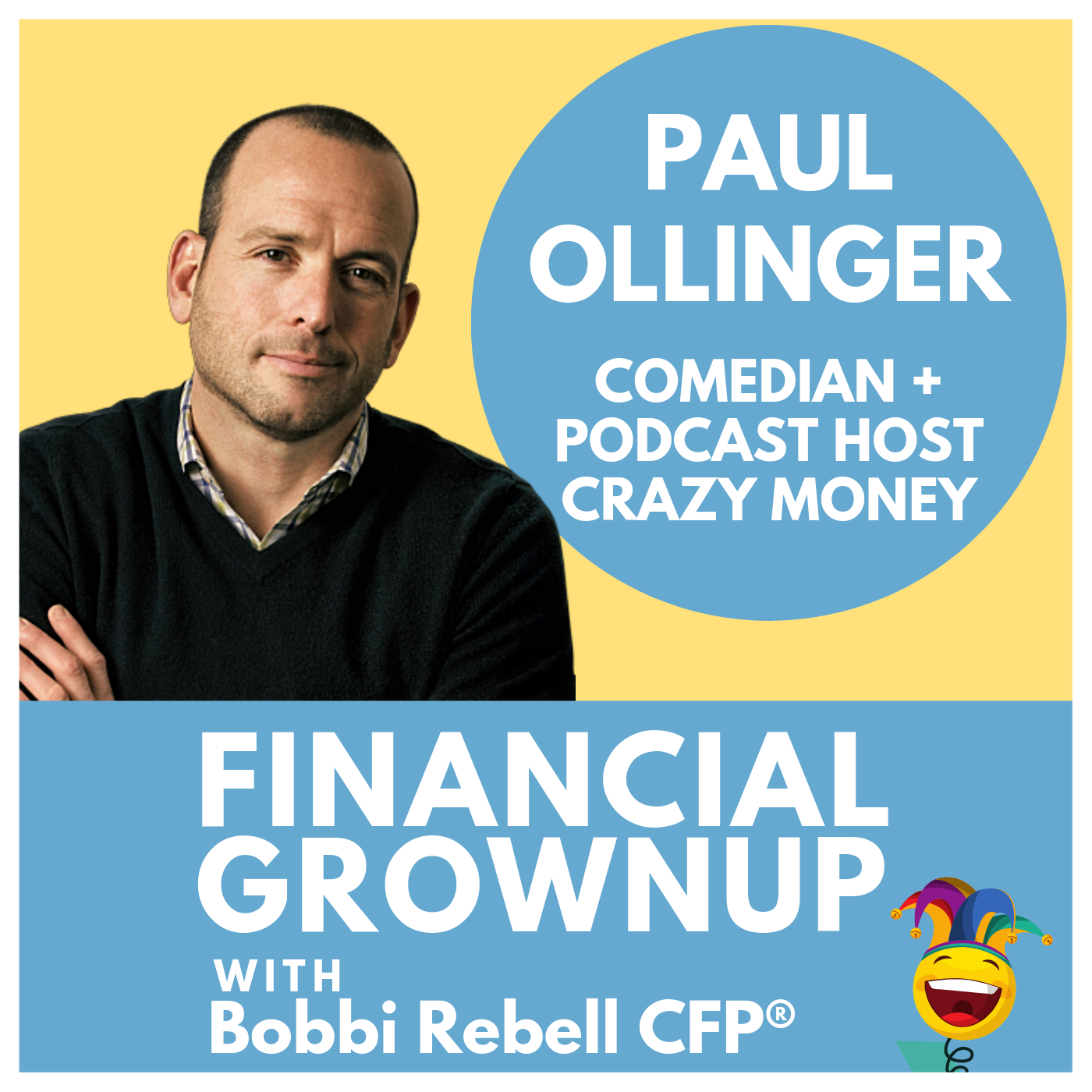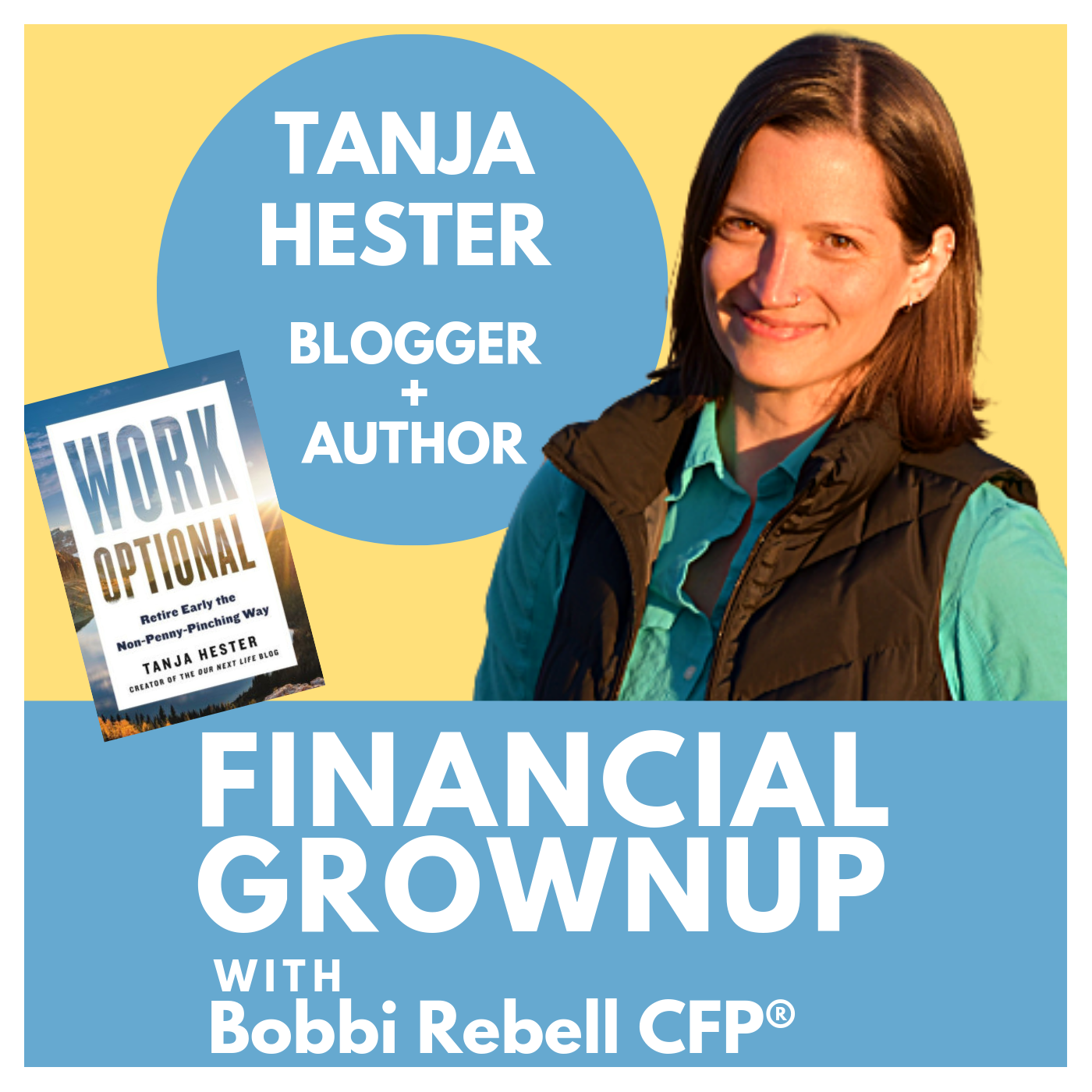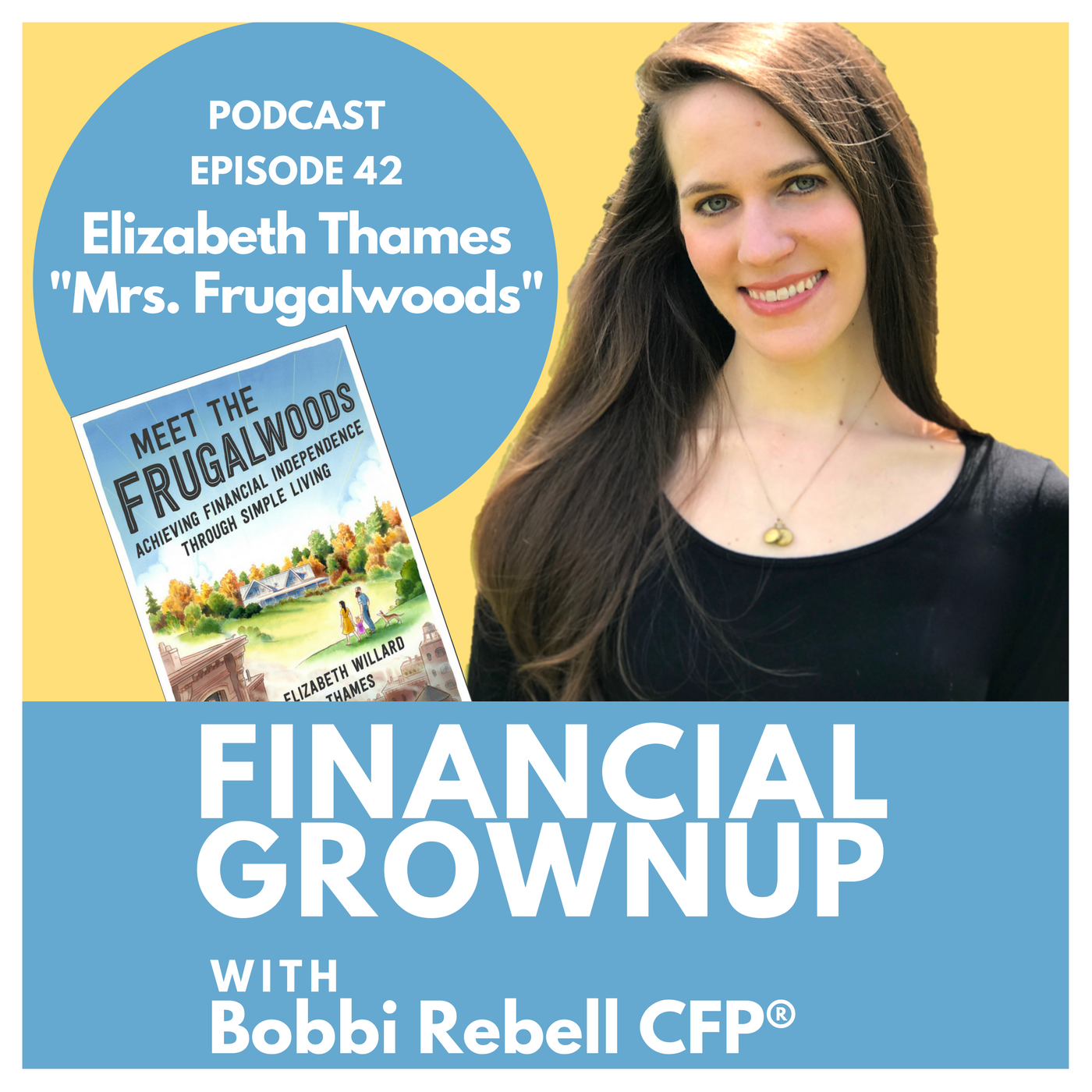Former Facebook exec. Paul Ollinger left his job with a pile of money and no plans. But retirement wasn’t all that and he decided to use his financial freedom to pivot to his true love, making people smile as a standup comedian and host of the podcast "Crazy Money".
“The experience of being retired early was far far less satisfying than I ever anticipated that it would be.”
Paul's money story:
Yeah, I did quit at 42 and I left Facebook without a plan. I just thought, "Hey, I have enough money. I don't want to work and be stressed out all the time. I don't want to be away from my family. I want to be close to my mom who's sick," and I bailed on work and I didn't have a plan, so I thought, "Well, I'll just go be kind of rich for a while." After you take a few trips after you start getting back in shape and work on your golf handicap, one day I came home after dropping my kids at school and I turned on my computer and there was nothing there. It was like, you have no mail. I was like, huh. I was like, I missed work. I missed having a goal. I missed my friends. I missed my colleagues. I missed the challenge of being a part of a team and I was like, well, what now? The experience of being retired early was far, far less satisfying than I ever anticipated that it would be.
Bobbi Rebell:
Yeah, because we talk a lot now, there's this growing enthusiasm for this acronym FIRE, as I mentioned, Financial Independence Retire Early. You have some very strong opinions about that.
Paul Ollinger:
Yeah, I think FI is great, financial independence. I think it's hugely neglected in our country and that we should all work very, very hard to buy ourselves back from the bank and to give ourselves a buffer so that we have the independence to leave a job if it's unhealthy for us, but I think the fascination, the fetishizing of RE, retire early, is hugely misdirected. You don't want to not work. You want to work on your terms and if that's how you interpret RE, then we're on the same page. but you want to be able to do work that's sustainable, that feeds your soul, and that is done in a way that leaves time in your life for things like family and staying healthy. The goal of retiring early and having nothing to do, that's not something any of us should aspire to.
Bobbi Rebell:
Okay, so back to the blank computer screen. You're sitting there, you got no mail, you got nowhere to go. What happens next?
Paul Ollinger:
Well, I had done comedy before I worked at Facebook. I worked at Yahoo. I paid off my student loans and I went and I did comedy for two years before I went to Facebook. Then I got engaged and I just happened to end up getting a job selling advertising in Facebook, but when I left Facebook, I didn't have a plan. I was just walking away from something; I wasn't walking toward anything. After a year and a half, two years, of kind of goofing off and not finding what I wanted to do, I sucked it up and I decided I'm going to write every day, I'm going to get back in the open mics, I'm going to figure out how to reinvent myself as a stand-up comedian at, I guess it was 45 or 46 years old by that time.
Bobbi Rebell:
Wow. What was the first thing you did? What was the conversation like with your family because you are now married and you now have children? If you're comfortable, tell us. You're welcome to tell us all your financial details, but give us some context for what this would involve financially.
Paul Ollinger:
On my very first date with my wife 14 years ago, I told her that I was going to quit my job and be a stand-up comedian and she was in from day one. You might also say she was warned on day one, so we've gone through periods of me doing very, very well in the corporate world and me making very little money as an artist. Four and a half, five years ago, when I really started back after Facebook, I said, "I'm going to commit to doing this, to getting after being a full-time comedian." She was fully onboard. Now, full disclosure, working at Facebook as one of the first 250 employees and getting stock options provided us with a size-able nest egg from which we have enough money to live indefinitely if we don't overspend. That certainly puts salve on the wounds of financial... the questions around finances if you don't have to make a living to feed your kids and pay your mortgage,
Bobbi Rebell:
What is it that you think people misunderstand then about the whole FIRE concept?
Paul Ollinger:
What people don't understand is how much they get from work that they're not computing on the positive side of the ledger. They think about work, they think about, okay, I get a paycheck and then it comes with all these costs of stress and hours and travel, but they're not saying, oh, what I get from work isn't just a paycheck. It's camaraderie, it's an identity, it's respect from colleagues, it's the satisfaction I get from learning and solving problems. All that stuff is really, really important. I mean, look at Maslow's Hierarchy. Belongingness is something that takes us one step above where we would be without work.
“I missed work. I missed having a goal. I missed my friends. I missed my colleagues. I missed the challenge of being part of a team.”
Paul’s money lesson:
Find work that you want to do for as long as you can. Find work that doesn't just pay the most, but that you want to do for as long a period as you can. If you have a dream, by the way, it's a lot easier to chase if you've paid your bills first. Putting a little nest egg away before you chase your dream is a far safer way to do it than just saying screw this when you're 32 and then when you're 55 not having anything to show financially for your efforts of the previous two decades.
Bobbi Rebell:
Do you think there is a danger that some of the young retirees are putting themselves in by, especially, we're recording this at a time when the stock market is extremely volatile, so people may have historic calculations in their savings, but they may not necessarily play out as they expect?
Paul Ollinger:
Well, I think there's two things there absolutely. One is, if you think having a million dollars when you're 32 in the market is going to last you forever, then you haven't lived through too many economic cycles and that million dollars can easily be $600,000 after a couple of bad quarters, so there's that. The second thing is that it's human nature that our wants continue to expand and it's not that we can't manage that as people, and I think we should be very aware of how we spend our money so that we're making sure we're spending it on what we value and provides us with more happiness, but however much you have and think you can live on when you're 32, it's not going to be the same number when you're 42 as perhaps your family expands or your parents get sick. There's all kinds of stuff that's going to happen in life that million bucks that could turn into $600,000 probably won't be able to pay for.
“If you have a dream, it is a lot easier to chase if you have paid your bills first.”
Paul's everyday money tip:
Paul Ollinger:
Be on the same page as your spouse. As difficult as it may be, go sit down and talk about where you're spending your money with your partner because there's nothing more expensive than not being on the same page with the person who shares, not just your life and your household, but the money that you all spend together.
Bobbi Rebell:
Yeah, and I'm just going to add, have that conversation ASAP if you're not already and don't be afraid to actually bring documents and go over what you're actually spending. Right?
Paul Ollinger:
Well, that's the first part is to find out where it's actually going and to say, "Hey, do you know that we're actually spending X on this? Do you feel like, are you getting what you want out of it? Because it doesn't feel like that's bringing us as much happiness as the top line number would indicate it should be."
Bobbi’s Financial Grownup tips:
Financial Grownup tip number one:
My favorite line of Paul's in this entire episode was quote, "If you have a dream, it is easier to chase it if you have your bills paid." The truth is that is not so easy, but it is often the harsh truth. We get so caught up in the romance of going for it that we forget the role of financial stability in getting to our goals. No one wants a comedian who is stressed out about his bills, although actually in Paul's case, that could probably work into his act, but you get what I'm saying here.
Financial Grownup tip number two:
After our interview, I asked Paul how we could score discount or even free comedy tickets. He gave me the inside scoop. He said a lot of the shows don't actually sell out and the clubs make a lot of their money on the drinks and then the other stuff that you buy there, like souvenirs, so they really want to fill those seats and they often do this by sending out last minute email blasts offering free, free, free seats. You need to find out where the comedy shows are in your area or where you're going to visit. Get on those email lists, follow them on social media, so you can be on the list or get the social media tweets or posts and find out when those free tickets are happening.
Episode Links:
Blinkist - The app I’m loving right now. Please use our link to support the show and get a free trial.
Paul’s website - www.PaulOllinger.com/
Paul’s podcast Crazy Money
Follow Paul!
Instagram - Paul_Ollinger
Facebook - @PaulOllinger
Twitter - @Paul_Ollinger
LinkedIn - @PaulOllinger
Some of the links in this post are affiliate links. This means if you click on the link and purchase the item, I will receive an affiliate commission at no extra cost to you. All opinions remain my own.









